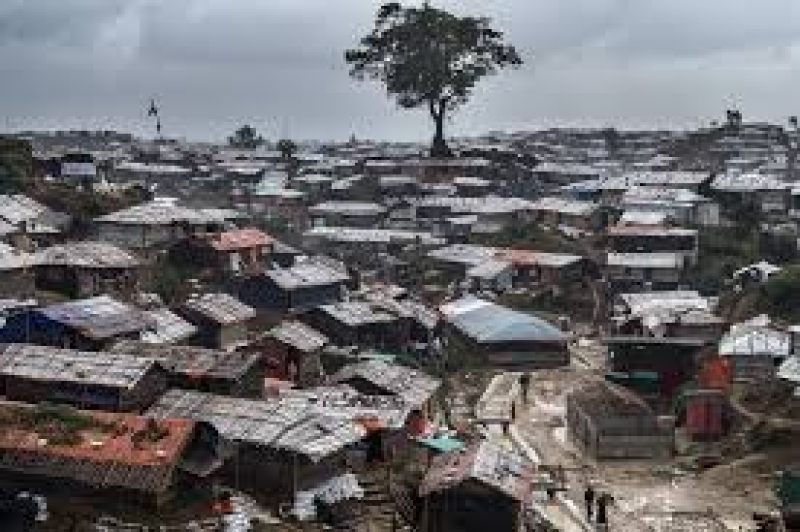- CA Yunus pays homage to Liberation War martyrs on Victory Day |
- Bangladesh capital market extends losing streak for second day |
- Bangladesh celebrates Victory Day Tuesday |
- 'Different govts presented history based on their own ideologies': JU VC |
Humanitarian corridor for Rakhine—Balancing Humanity and Politics

Rohingya refugee camp. Unicef
The UN’s proposal to open a humanitarian corridor into Myanmar’s Rakhine State highlights a painful dilemma: how to get aid to starving civilians without worsening the political crisis surrounding the Rohingya. With the Arakan Army (AA) now controlling large parts of Rakhine, the UN sees an urgent need to bypass Myanmar's junta to deliver food and medicine. But Bangladesh has raised valid concerns.
Dhaka fears that legitimizing the AA—widely seen as hostile to the Rohingya like the Myanmar Army—could make future repatriation of nearly one million Rohingya refugees even more difficult. The Myanmar junta, too, may view this as a challenge to its sovereignty, leading to retaliation.
Yet delaying aid would be deadly. Civilians of all ethnicities, including the Rohingya, are on the brink of famine. The solution lies in a carefully monitored corridor, ensuring neutrality, equal access, and protection for all communities. Aid must not empower any armed group, and international oversight is crucial.
Bangladesh should engage with the UN to shape the corridor’s terms rather than block it outright. The humanitarian need is real—but so are the political risks. The global community must act wisely to save lives while keeping the long-term goal of Rohingya justice and repatriation in sight.

